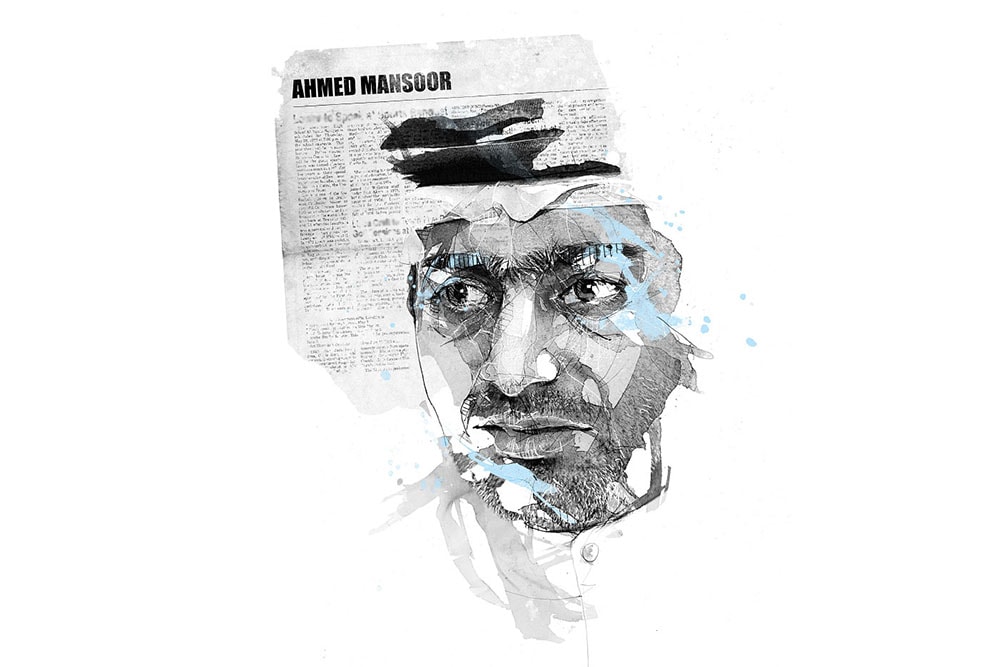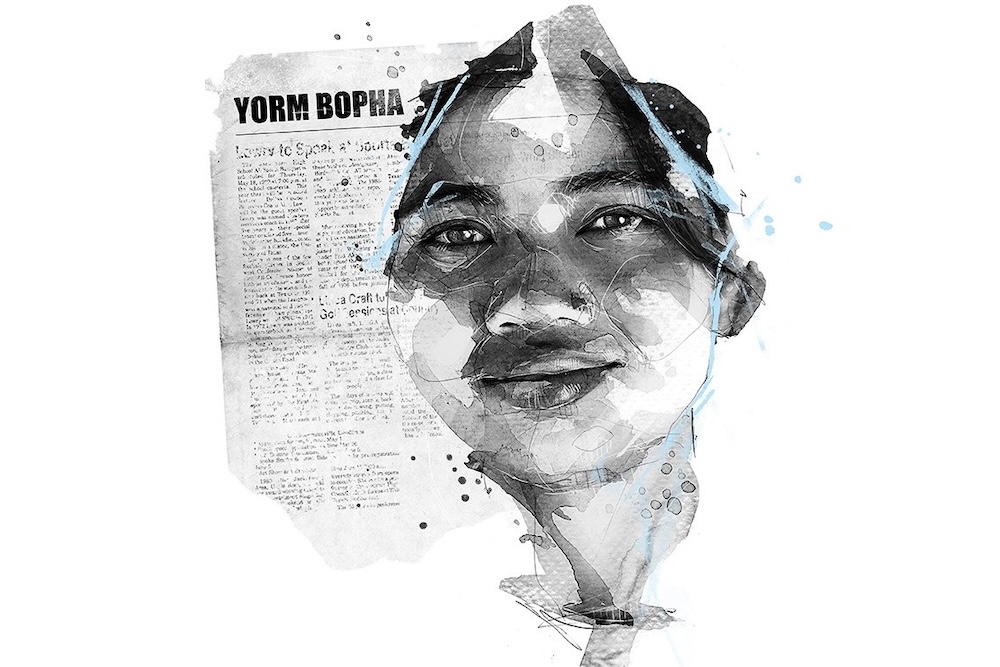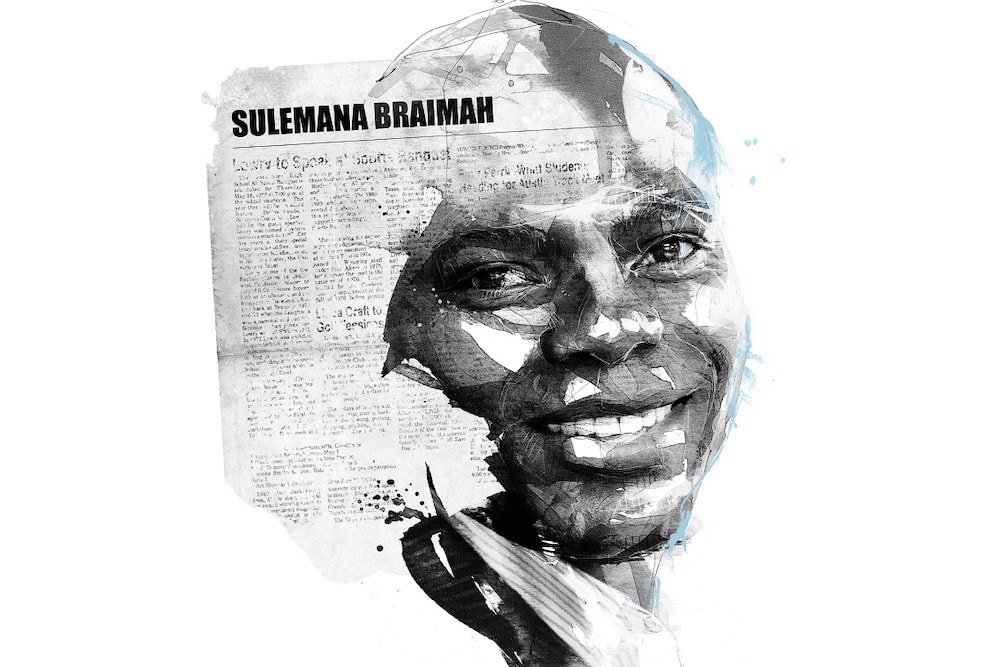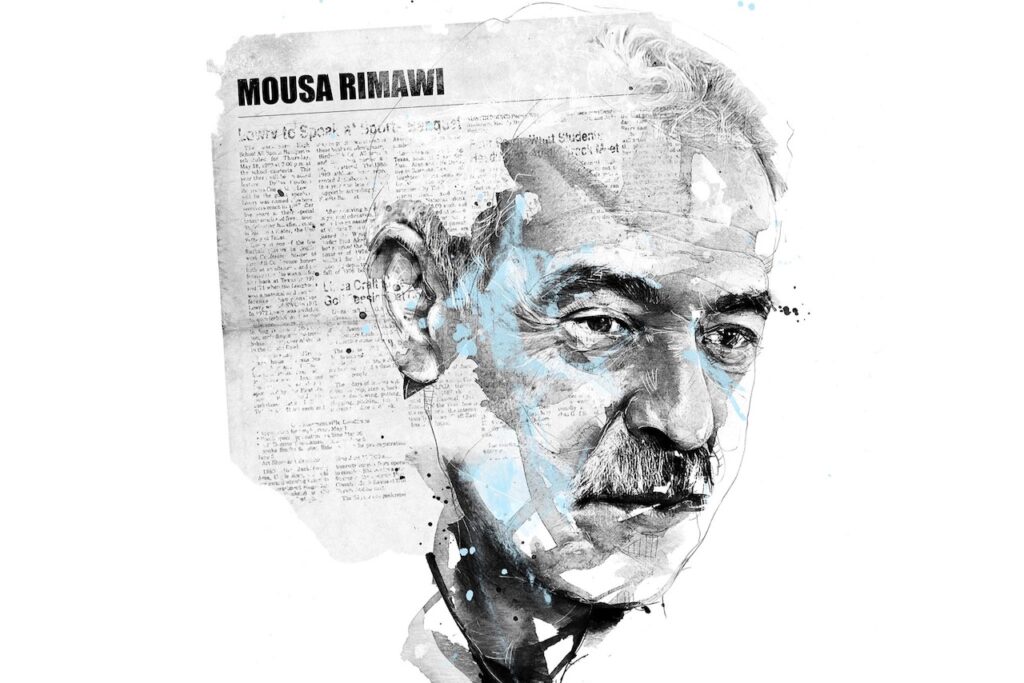The renowned Emirati human rights defender Ahmed Mansoor has been beaten, banned from traveling and assaulted. He resisted highly sophisticated hacking attempts. On 29 May 2018, Mansoor was sentenced to ten years in prison. His appeal was rejected on 31 December 2018.
"The only way to counter repression is by revealing it."
Over the years, the renowned Emirati human rights defender Ahmed Mansoor has been detained, beaten, banned from traveling, and a target of highly sophisticated hacking attempts. On 29 May 2019, Mansoor was convicted of “publish[ing] false information, rumours and lies about the UAE” for his social media posts, sentenced to ten years in prison and fined 1,000,000 Emirati Dirham (approximately USD $270,000). His appeal was rejected on 31 December 2018, and since his imprisonment Mansoor has languished in solitary confinement.
Background
In the early hours of 20 March 2017, Mansoor was arrested after a dozen Emirati security officers stormed his home in Ajman, one of the emirates of the UAE. For over a year after his arrest, Mansoor remained in detention without charges, reportedly spending at least six months in solitary confinement. With his exact whereabouts unknown, he was denied the right to appoint an independent lawyer and banned from making calls to his family. His wife was allowed to visit him only twice, briefly and under strict supervision, on 3 April and 17 September 2017.
On 12 April 2018 it was finally revealed that Mansoor had been taken to court. To the surprise of many, his trial had already started, in March of 2018. Mansoor, whose photo on Twitter is of another Emirati activist also under arrest, Dr. Nasser Bin Ghaith, is accused by UAE authorities of using social media websites to “publish false information that harms national unity.”
Shortly after his arrest, UN rights experts declared that they “regard Mr. Mansoor’s arrest and detention as a direct attack on the legitimate work of human rights defenders in the UAE,” adding that “Mr. Mansoor’s outstanding work in the protection of human rights and the advancement of democracy, as well as his transparent collaboration with UN mechanisms, is of great value not only for the UAE but for the whole region”.
After his sentencing, calls for his immediate and unconditional release have been issued by UN experts, the European Parliament, as well as prominent intellectuals, political figures and activists from around the world..
Throughout 2019, Mansoor has gone on several hunger strikes in protest of his unjust conviction and demeaning prison conditions at Abu Dhabi’s Al-Sadr prison, where he resides in solitary confinement. He has been subject to beatings, denied a bed, water, sunlight, books and newspapers, as well as telephone calls and communication with his family. On 17 March 2019, Mansoor went on a hunger strike that lasted several weeks, and began a liquid-only hunger strike in September 2019.
With his health deteriorating, rights groups have called on international bodies to visit Mansoor to confirm his condition. In October 2019, some 140 rights organizations, including IFEX members, launched a Global Week of Action to call attention to his situation, and issued a public letter ahead of his 50th birthday requesting his immediate release after 1,000 days in prison.
In January 2020, critical insight into Mansoor’s prison conditions were offered by Polish businessman Artur Ligeska, who spent eight months in Al-Sadr prison in 2018. Now free, Ligeska befriended the Emirati activist who was two cells away during his time in the notorious prison, which he described as ‘hell on Earth’. According to Ligeska, prison authorities told Mansoor that they had no control over his conditions, with all instructions coming directly from the Presidential Palace.
In December 2023, as the UAE hosted the United Nations Climate Change Conference (COP28), human rights advocates held a rare protest calling for Mansoor’s release, as well as for the release of other jailed prisoners of conscience. Instead, Emirati authorities launched another unfair trial, charging 84 defendants for forming an independent advocacy group in 2010, including Mansoor. At least 60 of the defendants were already convicted during a mass trial in July 2013, and, like Mansoor, are serving long prison sentences based on dubious charges.
Following these developments, in July 2024 the Abu Dhabi Federal Appeals Court handed down draconian sentences in another sham trial – convicting at least 44 defendants, including prominent activists like Mansoor, amid serious due process violations, with terms ranging from 15 years to life in prison.
The repression escalated further on 4 March 2025 when the UAE Federal Supreme Court rejected appeals in the controversial UAE84 case, effectively extending Mansoor’s sentence to 15 years on charges of allegedly “cooperating with a terrorist organisation.” Human rights advocates denounce these rulings as deliberate efforts to keep critics imprisoned indefinitely, with Mansoor still held in solitary confinement.
Khalid Ibrahim, Executive Director of Gulf Center for Human Rights (GCHR), where Mansoor serves on the advisory board, condemned the ruling: “It’s a tragedy to put on trial innocent citizens who have mostly served their initial sentences, solely to keep them imprisoned indefinitely for their peaceful and legitimate human rights work.”
Profile in courage
An engineer, blogger, and poet, Ahmed Mansoor is one of the Gulf’s most well-known human rights defenders. In 2015, he was selected by a jury of ten global human rights organisations to receive the Martin Ennals Award for Human Rights Defenders, which described him as “one of the few voices within the United Arab Emirates (UAE) who provides a credible independent assessment of human rights developments in the country.”
Active since 2006, Mansoor came under the spotlight for successfully campaigning in 2006-2007 in support of two people jailed for social comments; people who were then released and their charges dropped. This was even followed by the Prime Minister of UAE issuing an order “not to jail journalists in relation to their work”.
In 2009, Mansoor led an effort to oppose a draft media law under consideration by the UAE government that was widely viewed as a threat to freedom of expression and freedom of information. He launched a petition urging the president not to approve the draft law, which was subsequently suspended.
Mansoor also ran the site UAEHewar.net (Hewar, حوار, being the Arabic for “dialogue”), which was repeatedly censored by the authorities. During one of these censorship periods, in February 2010, Reporters Without Borders (RSF) reported that “some of the contributors to the site think the authorities are blocking it in order to discover the identity of the site’s owners, who call themselves ‘Emirati intellectuals'”. As it happens, Mansoor was one of these intellectuals, although he wasn’t the owner of the site.
Inspired by the Arab Spring, five intellectuals, including Mansoor, launched a petition on 3 March 2011 calling for democratic reforms in the UAE. This led to their arrest three months later, in June 2011. In what became known as the UAE5 Case (The UAE Five), they were accused by the government of “publicly insulting the UAE leadership”. They were sentenced to three years in prison but released during a presidential amnesty in November 2011, after having spent nearly eight months in jail. The four other arrested activists were Dr. Nasser bin Ghaith, the Emirati economist and lecturer at the Abu Dhabi branch of the Paris-Sorbonne University, and online activists Fahad Salim Dalk, Hassan Ali al-Khamis and Ahmed Abdul Khaleq.
It is also believed that international outrage and pressure contributed to their release. Their case was widely reported in the international press and by Amnesty International, which coined the term “The UAE Five”, labelling them prisoners of conscience. Human Rights Watch (HRW), Front Line Defenders, Index on Censorship and the Arabic Network for Human Rights Information (ANHRI) also called for the men’s release, and more than 70 comedians signed a petition launched by Amnesty International during the 2011 Edinburgh Festival. Due to his status as an academic, Dr. bin Ghaith’s arrest was also protested by Scholars at Risk and the Committee of Concerned Scientists.
Mansoor was also repeatedly a hacking target of the government. In 2011, he was attacked “with a sophisticated piece of spyware designed to siphon off all kinds of data from his computer”. In 2016, Mansoor made the headlines again for something that was out of his control. He received a suspicious text on his iPhone promising details of torture in the country’s state prisons. Mansoor, by then suspicious enough not to click, sent the message to Citizen Lab researchers who reported that they “recognized the links as belonging to an exploit infrastructure connected to NSO Group, an Israel-based “cyber war” company that sells Pegasus, a government-exclusive “lawful intercept” spyware product.” The subsequent scandal exposing vulnerabilities in iOS led to Apple updating its system.
As mentioned, UAEHewar.net was repeatedly censored by the authorities. On 14 March 2010, Abdul Hamid Alkamiti, an Emirati lawyer and human rights activist, filed a complaint “to the prosecutor general in Dubai against the Telecomm Regulatory Authority, demanding the disclosure of reasons behind the censorship action.” The website has since been suspended.
Mansoor also wrote about the plight of stateless persons, known in the region as bidoon (literally, “without”, as in “without nationality”). In fact, one of the UAE5, Ahmed Abul Khaleq, was classified as a bidoon and thus had no UAE citizenship when arrested. On 21 May 2012, he was granted a Comoros passport and was arrested by UAE authorities again the next day. Forced to choose between permanent expulsion and indefinite detention, Khaleq left for Thailand. The day of his departure, 16 July 2012, the UAE revoked his right of residence, thus preventing his return to the country.
Deporting dissidents and activists is not unusual in the UAE, with another notable activist, Iyad El-Baghdadi, a stateless Palestinian activist residing in the UAE, deported after being faced with the same choice as Abdul Khaleq. El-Baghdadi made his way to Malaysia and ended up in Norway, where he applied for asylum.
In 2016, Le Monde met with a tired Mansoor who described the various methods of harassment being used against him. They included a travel ban, surveillance, sums of money mysteriously disappearing from his bank accounts, online death threats and even beatings by ‘strangers’.
Mansoor is also a member of the Advisory Committee of Human Rights Watch’s Middle East and North Africa Division. He holds a Bachelor of Science in Electrical Engineering and Master of Science in Telecommunications from the University of Colorado Boulder in the United States.
Illustration by Florian Nicolle




